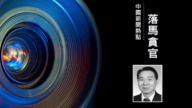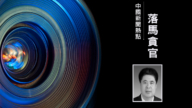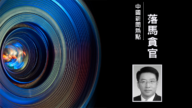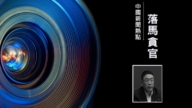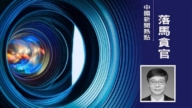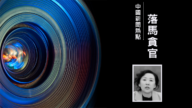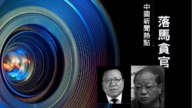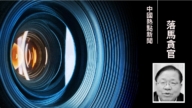【新唐人2014年11月15日讯】据外媒报导,在刚闭幕的APEC会议期间,美国政府内部在传阅一份刚刚解密的重要情报。情报说,迹象表明中共高层发生了严重分裂。
《华盛顿自由灯塔》(Washington Free Beacon)11月11号报导,中共内部政治裂痕的产生,和全国性的“反腐”运动有关,还牵涉到中共高层,就如何清除几名身居党内高位的最高层官员,存在不同意见。以往这么高级别的中共官员,是不会因为“腐败”而落马的。
报导说,这份报告披露,中共领导层的分裂和处理周永康有关。周永康曾是中共政治局七常委之一,还是中共最“资深”的安全部门主管,一度权倾朝野的周永康从7月份以来接受“腐败调查”。
这份报告披露的时机,正值中共举办APEC峰会、招待世界各国领导人的时候,而且,中共呼吁加强“具有中国特色”法治的“十八届四中全会”也才刚刚闭幕。《华盛顿自由灯塔》的报导说,“法治”这个西方名词,被中共翻译过来就成了“通过运用法律来维护党的统治,而不是维护司法系统的独立”。
美国情报部门选在这一时机解密这份报告,是否有深意呢?
中国问题独立评论员李善鉴:“他在这个时候讲这个事情,一定是说他看到了非常明显的表现。那就是中国不同的领导人,他在讲不同的话,而且这个话是明显的针对另外一个派别的领导人,另外一个派别的势力,而且这些话的分歧是相当相当明确。”
中国社会问题研究人士张健:“APEC峰会上,借奥巴马之口可能不太方便去讲,那么借美国的情报部门,去把这话放出来呢,释放了一个很强烈的信息,就是希望习政权遵守法治治国提出的根本。但是在中共统治下,法治治国是一个空谈,也永远是人民不可能实现的一个梦。”
报告说,中共领导层分裂的一个重要迹象是去年夏天,《长白山日报》在网络版刊登习近平6月26号在政治局闭门会议中提到的,“腐败与反腐败的两军都在对抗,处于胶着状态。”尽管《长白山日报》是吉林省长白山市中共的官方喉舌,但很快这篇文章被中共自己的审查人员删除,表明文章透露了敏感的内部信息。
另外,就周永康是不是最后的大老虎,中共官媒也发出混杂的信息,显示某些高层因为反腐运动感到紧张。
张健:“现在最大的征兆就是说,中央行的文,和中宣部,和中共所控制的央视的媒体,还有人民网、新华网、环球时报它们是各唱各的调、各拉各的弦。习政权推出的和刘云山推出的,是完全不一致的。习派的影子和江派的影子,在不同领域上、不同层面上都发挥出这种较量的痕迹来。”
报告还举出中共党内领导层分裂的另一个迹象,就是周永康案的调查时间很长。一般来讲,只需要两个月就可以完成对“贪污”指控的调查。但是周永康案迟迟没有定论,致使外界猜测,是因为不同的政治力量博弈,导致僵持不下
张健:“尤其是这次的四中全会,又并没有把周永康这个问题拿出来,就足以证明双方在周永康这里,作为最后一个阵地,在殊死的拼杀。”
报导还说,中国问题的分析人士一直讨论,中共领导层分裂将是一党专制崩溃的征兆之一。这表示,这是从1949年中共窃取政权后,中国将发生的一个巨大的变化。
中国问题独立评论员李善鉴表示,目前越来越多的中国人公开对中共表示不满,退出中共和附属组织,是更具意义的一党专制崩溃征兆。中国人的退出拔起了中共统治的根基,使它面临随时垮台的危机。
采访/朱智善 编辑/尚燕 剪辑/舒灿
US Intelligence: Signs of Division Among CCP Leadership
The recent unclassified intelligence report is said to be
circulating within the U.S. government during APEC,
according to foreign media reports.
It is said that signs of a serious division within the ruling
Chinese Communist Party (CCP) are emerging.
The Washington Free Beacon ‘s Nov. 11 report:
The political rift is being linked to a nationwide
anti-corruption, and to differences among top leaders over the
purge of several of China ‘s most senior leaders…
who held posts at senior Party levels that in the past
were immune to such crackdowns.
Beacon: The recent unclassified intelligence report circulated
within the U.S. government disclosed that the leadership rift
is linked to the case against Zhou Yongkang, a former member
of the Politburo Standing Committee, the seven-person…
collective dictatorship that rules China
Zhou, considered Party ‘s most senior security chief
and one of the most powerful leaders in China, has been
under investigation for corruption since at least July.
Disclosure of the divisions comes as China is hosting
an economic summit in Beijing for world leaders.
It also follows a recent Party conference that called for
increasing Chinese-style rule of law.
Beacon: a western-sounding concept that in China translates
into the use of laws to maintain the Party ‘s power—
not to maintain an independent judicial system.
What is the profound meaning of the US intelligence agencies
disclosing the report at this point in time?
Chinese independent commentator Li Shanjian: it must be
some distinct manifestation that has been shown.
That is the different leadership is obviously conducting
the dialect towards the leadership of a different faction.
The differences in these dialects are very distinct.
Zhang Jian, Chinese social issue researcher: There are things
that are not so convenient for Obama to express at APEC.
Through the U.S. intelligence agencies, it released a very
strong message, it is hoped for the Xi regime to comply with
the rules of law.
But the rule of law is empty talk under the CCP ruling,
and a dream never achievable for the Chinese.
Beacon: One key sign of the leadership dispute appeared
briefly last summer in an online version of the Party
newspaper Changbaishan Ribao.
The newspaper, an official mouthpiece for the regional Party
in Baishan City, Jilin Province, quoted Xi as telling a closed-
door meeting of the Politburo on June 26 the following:
the two armies of corruption and anti-corruption
are in confrontation, and have reached a stalemate.
Shortly after the article appeared it was removed by
Chinesecensors, an indication it had revealed
sensitive internal information.
Beacon indicated: State-run Chinese media also have sent
mixed messages, and that Zhou is not the last senior
official to be ousted.
Xi ‘s anti-corruption campaign has produced “tension”
among members of the elite.
Zhang Jian: The biggest sign was shown from the various tones
from Central, to the Propaganda Department, the mouthpieces
such as CCTV, People’s Daily, Xinhua, and Global Times.
They all sing different choirs.
Xi ‘s words are totally inconsistent to Liu Yunshan ‘s words.
The traces of this contest between Xi ‘s faction and
Jiang ‘s faction are shown in various fields and levels.
Another sign of leadership divisions within the Party is
the length of time it is taking for the Zhou investigation
to be concluded.
Zhou is facing graft charges and normally the regime completes
its investigation of senior leaders within two months.
The delay in the case is fueling speculation that leaders
remain deadlocked over how to handle the case,
reported Beacon.
Zhang Jian: Zhou Yongkang has completely missed
out in the Fourth Plenary Session.
It is enough to prove that the two sides are in desperate
flames on the case of Zhou Yongkang at the last position.
Beacon: Analysts of China have long argued that leadership
divisions in China would be among the indicators of a
breakdown of one-party rule that could produce a change in a
system in place since the Communists seized power in 1949.
Li Shanjian explains that more and more Chinese have openly
expressed dissatisfaction with the CCP by denouncing the CCP
and its affiliated organizations.
This is an even more meaningful sign of the collapse
of the one-party dictatorship.
Denouncing the CCP would uproot the foundation of the CCP.
The CCP ruling is facing a crisis of collapse at any time.
Interview/Zhu Zhishan Edit/ShangYan Post-Production/ShuCan



